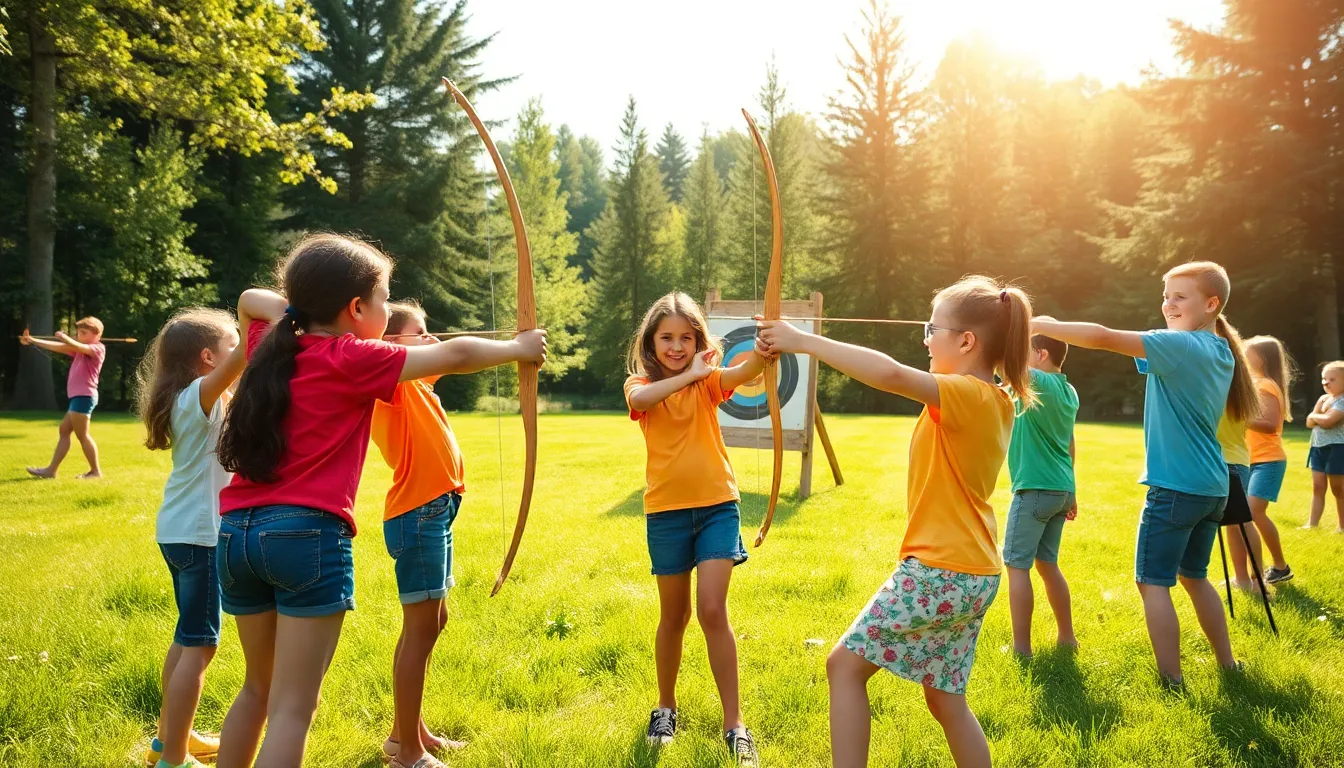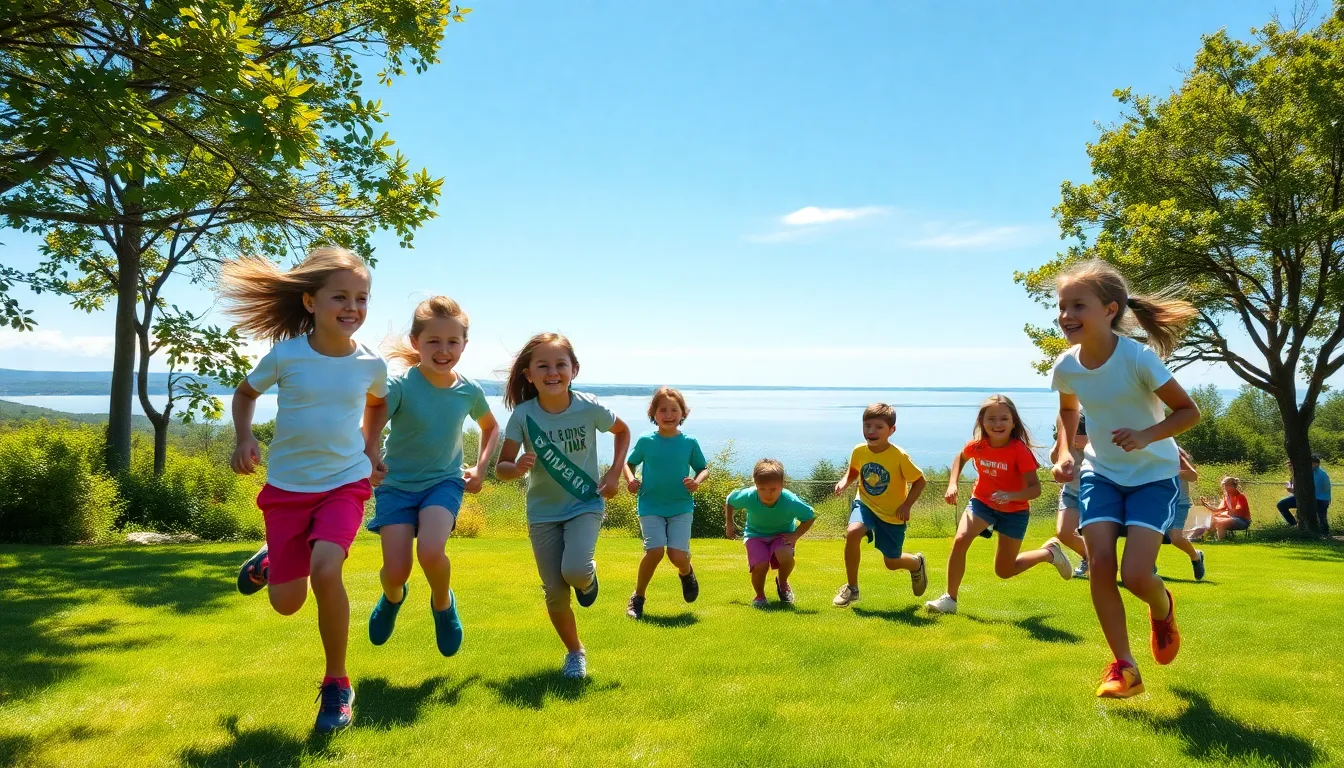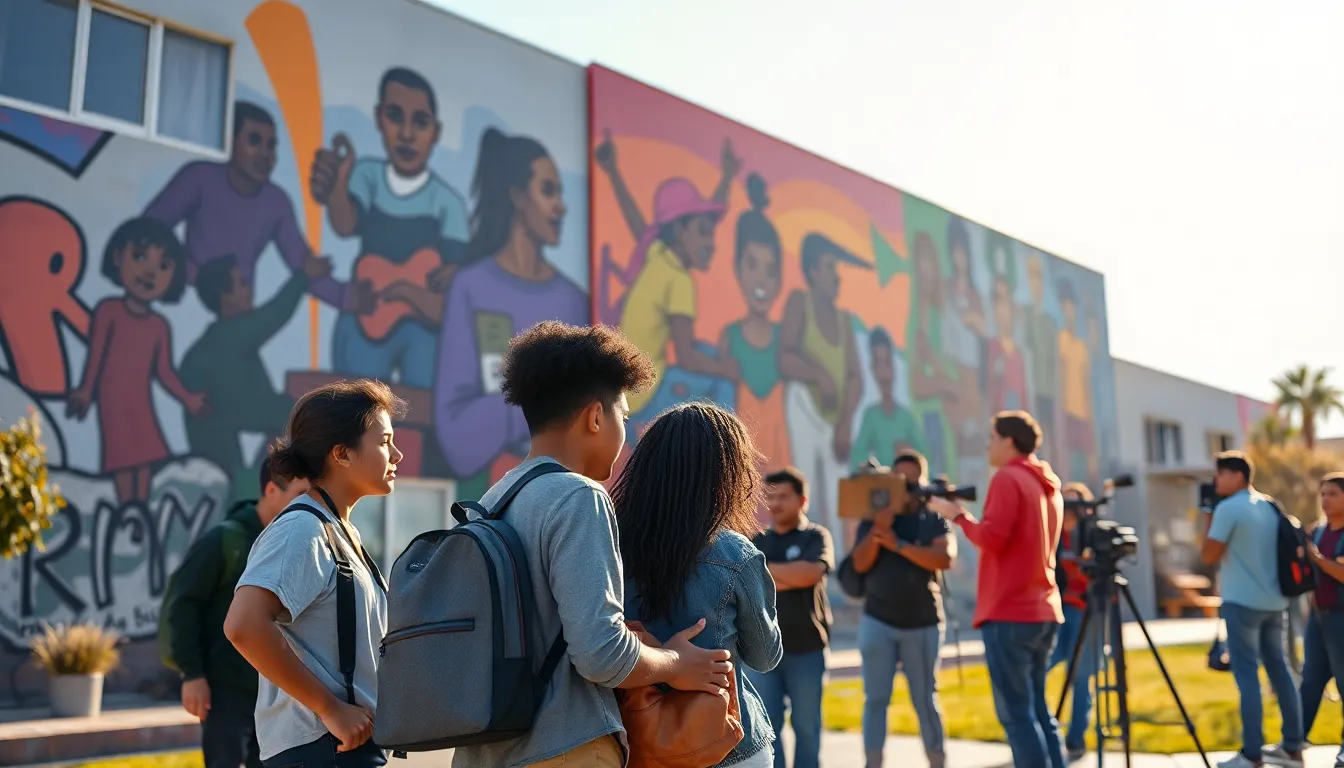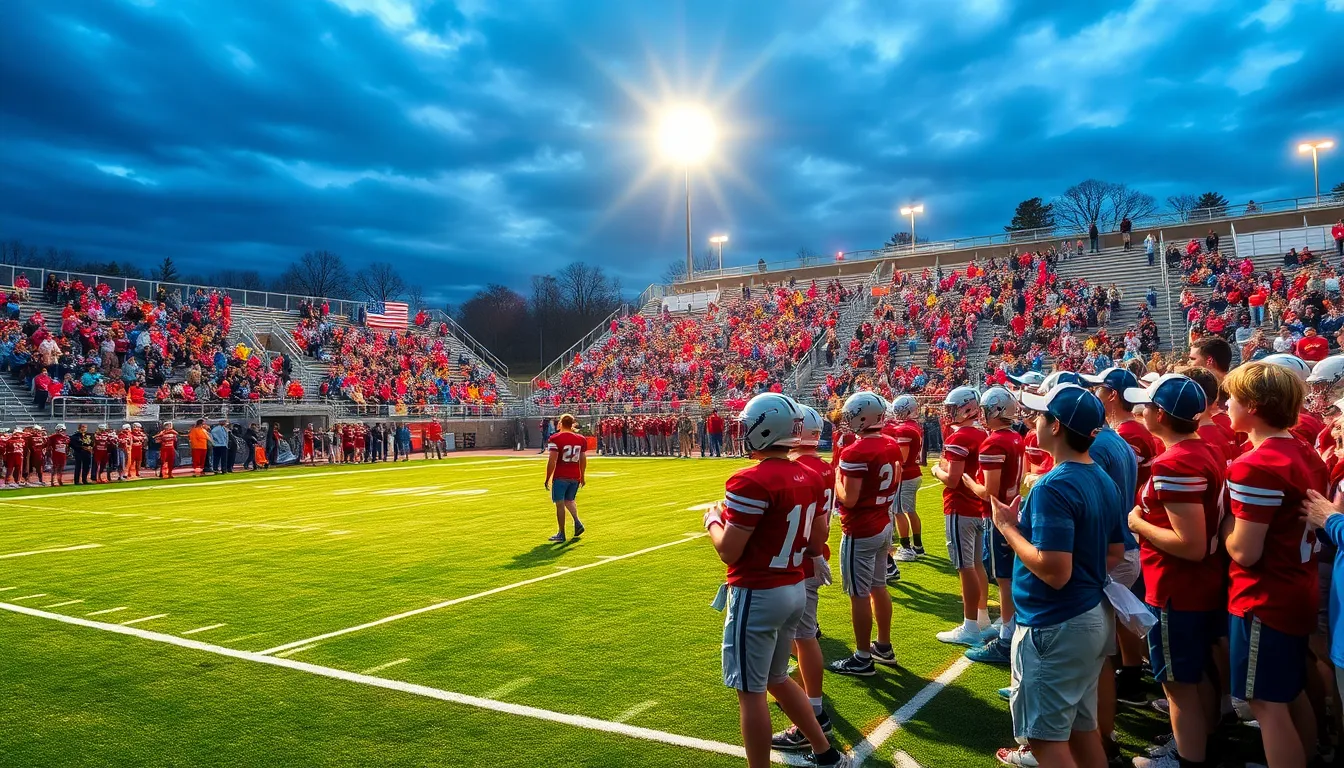Table of Contents
ToggleSummer’s just around the corner, and for kids, that means one thing: freedom! But wait, before they transform into couch potatoes binging on video games, there’s a world of adventure waiting at junior summer camps. These camps aren’t just about s’mores and campfires; they’re a treasure trove of fun, friendship, and learning.
Overview of Junior Summer Camps
Junior summer camps engage children in diverse activities that promote social interaction and personal growth. Many programs cater to various interests, such as sports, arts, or science, allowing kids to explore their passions. Camps typically run for several weeks, providing structure and routine while giving ample opportunities for creativity.
Participants in junior summer camps encounter new challenges that foster resilience and confidence. Each activity, whether hiking or crafting, encourages teamwork and communication skills. Camp counselors play crucial roles in facilitating experiences and ensuring a safe environment.
Parents often seek camps where their children can develop skills beyond the classroom. From learning archery to participating in plays, children gain practical knowledge and self-discipline. Many camps promote outdoor exploration and environmental stewardship, enhancing awareness of nature.
Safety remains a top priority for most junior summer camps. Staff members receive training in child development and safety protocols, ensuring children are supervised at all times. Camps often maintain low counselor-to-camper ratios to provide individual attention.
Families appreciate the camaraderie that develops among campers. Lasting friendships formed during these experiences offer social benefits that extend beyond summer. Through group activities, children learn empathy and cooperation, valuable skills for future interactions.
Junior summer camps shine as more than just recreational programs. They provide holistic development opportunities that equip children with essential life skills, ensuring a memorable and enriching summer experience.
Benefits of Junior Summer Camps
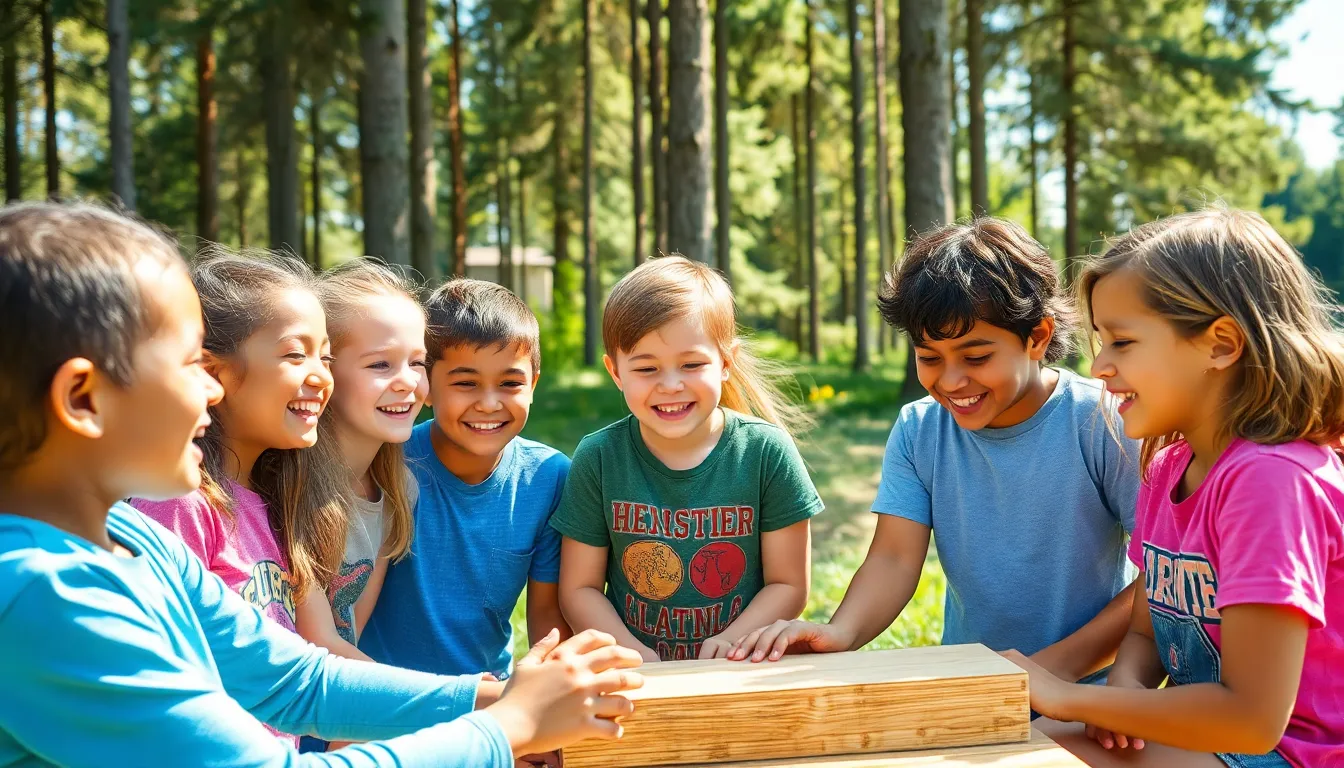
Junior summer camps offer numerous benefits that contribute to children’s growth and development. These experiences go beyond simple entertainment, focusing on various aspects of personal and social enrichment.
Social Development
Social interaction plays a crucial role in junior summer camps. Children engage with peers, fostering friendships built on shared experiences. New environments encourage kids to step out of their comfort zones. Skills in empathy and cooperation emerge as they navigate group activities together. Camp counselors facilitate teamwork through structured challenges, ensuring that all participants feel included. Exposure to diverse personalities broadens their social skills, enhancing their ability to communicate effectively. Lasting bonds formed at camp often extend beyond summer, promoting lifelong relationships.
Skill Building
Skill building constitutes a significant advantage of attending junior summer camps. Children explore various interests, from sports to arts and sciences, enhancing their abilities. Camp programs often focus on specific skills, such as archery or coding, encouraging children to pursue passions. Engaging in hands-on activities cultivates confidence as campers achieve personal goals. Children learn independence while taking responsibility for their choices. This experiential learning promotes problem-solving skills that carry over into everyday life. Overall, junior summer camps equip participants with valuable life skills that contribute to their development.
Types of Junior Summer Camps
Various types of junior summer camps cater to different interests and preferences, ensuring kids have a fulfilling summer experience.
Day Camps
Day camps provide a fun environment for children, allowing them to explore activities during the day and return home each evening. Participants engage in sports, arts, and crafts while enjoying social interactions with peers. Structured schedules create a sense of routine, with opportunities for snack breaks and outdoor games. Parents appreciate the convenience of day camps, which often operate during standard business hours. Various organizations run these camps, often located within communities or near schools.
Overnight Camps
Overnight camps offer an immersive experience where children spend multiple nights away from home. These camps promote independence as kids learn to manage their time and engage in activities like hiking or swimming. Each day presents new adventures, encouraging personal growth and lasting friendships. Campers often share cabins, fostering a sense of community and teamwork. Many overnight camps focus on developing specific skills, such as sailing or wilderness survival. Parents often find these camps ideal for building resilience in their children.
Specialty Camps
Specialty camps focus on specific interests, such as science, technology, or arts, providing tailored experiences for children. Participants dive into unique subjects, often guided by experts in the field. These camps promote skill development through hands-on projects and collaborative activities. Options may include coding camps, music camps, or sports academies, appealing to kids with specific passions. Specialty camps create an environment where interests flourish, fostering creativity and enthusiasm. Parents value these camps as opportunities for their children to explore and excel in their chosen fields.
Choosing the Right Junior Summer Camp
Selecting the right junior summer camp involves finding the perfect fit for a child’s age and interests. Parents need to consider both age appropriateness and preferred activities.
Age Considerations
Age plays a vital role in camp selection. Camps often cater to specific age groups, ensuring activities are suitable for developmental stages. Younger children might benefit from camps that prioritize guided play and basic skill building. Older campers may thrive in environments that challenge them through leadership opportunities and more advanced activities. Recognizing age-specific programming ensures children engage with peers while enjoying experiences tailored to their needs.
Activity Preferences
Activity preferences significantly influence camp choice. Families should explore a variety of options, from sports and arts to science and outdoor adventures. Each camp’s focus can shape a child’s experience, fostering passions and talents. Reviewing the activity roster helps identify camps that align with a child’s interests. Choosing a camp with diverse offerings encourages children to try new things, enhancing their overall enjoyment and growth during the summer.
Junior summer camps offer children an invaluable opportunity to grow and learn outside the classroom. By engaging in diverse activities and forming lasting friendships, campers develop essential life skills that will benefit them for years to come.
Choosing the right camp is crucial to ensuring that each child has a fulfilling experience tailored to their interests and age. Whether it’s through sports, arts, or science, these camps provide a supportive environment that encourages exploration and creativity.
As summer approaches, families can look forward to the adventures and memories that junior summer camps bring, setting the stage for a season filled with fun and personal growth.

